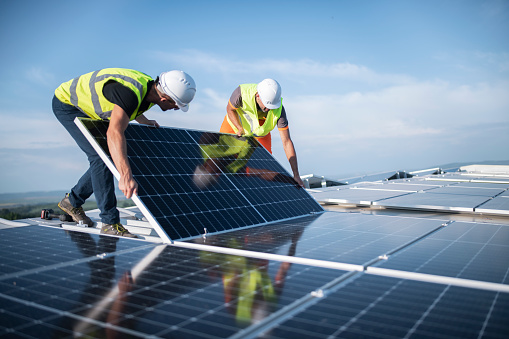Just as with a wide range of other innovative and technological products of the modern era, it’s not unusual for salespeople to go door-to-door, trying to sell solar panels to homeowners. While there’s nothing wrong with this, and you may well even invite them in and sit down to chat about the possibilities of generating your own, clean, green energy, how can you tell if the price they quote you, is one to be trusted?
To help you get a better idea of whether your solar quote is too good to be true, or simply a genuinely great deal, here are a few things to look out for:
The installer: are they reputable?
Salespeople are paid to sell products, period. This means that even if they’re representing a company with no credentials or poor customer service, they will still try to sell you their product, especially if they’re salary is commission-based, as is the case with many employed in the sales industry.
Ask the salesperson for evidence that the company they represent are professional and offer a genuinely good service; this means seeing evidence that they are licensed, bonded and insured. But don’t just rely on what you’re told or shown; do your own research once the salesperson has left.
The salesperson: are they pressuring you to sign a contract?
If something is really worth paying for, you won’t need a salesperson to convince you to sign up, you’ll volunteer to do it. Be wary of pushy salespeople who seem not to want to leave until you’ve signed a contract, this is almost always a red flag, even if the deal seems to be a genuine one.
The brand of equipment: what do they use and is it high quality?
You won’t need to do much research to discover which are the best brands when it comes to residential solar systems, and it’s always worth checking to see whether the brand this company are using, are of a high standard. If the quote you’ve been given seems low, poor quality equipment could be the reason.
The price per watt: what price are you being offered?
In short, the lowest price per watt is something you want to steer clear of; the installer should be giving you a quote based upon the cost of the system and its size in watts.
Power production estimates: are they realistic?
It’s important to know the truth about how much power a solar panel system is likely to produce, and if it feels as if you’ve been given an unrealistic estimate that doesn’t account for variables such as weather and shade, exercise a great deal of caution.
The system design: where will the equipment be placed?
If the installer is planning to cut corners by failing to install the system properly to lower the price and finish the job quicker, you’ll soon know it when you compare their plans to those of other local installers.
There are some incredible solar deals out there, but it’s important to be aware of all of the facts before signing a contract with an installer. Practice due diligence and caution, and then – get prepared for lower energy bills and a reduced carbon footprint!

